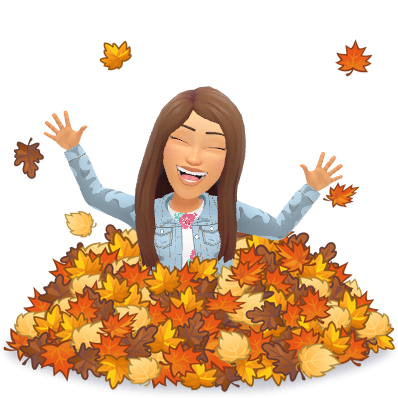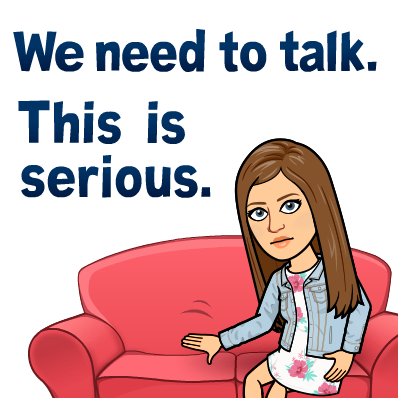So to change my mindset, especially considering #oneword2018, I have to look forward and remind myself... why do I teach? Why am I still doing this after 13 years?
A quick side note, this is my tenth year teaching middle school. Whenever people ask what I do, and I say that I'm a middle school teacher, I either get a crazy look or a sympathetic look. I've never gotten anything else. And even though this job is sometimes insane, I don't need the wild look or sympathetic look because I enjoy my occupation. I still want to come into the building day after that. I do this because I believe that my job is integral.
I believe that education has a purpose in society, that our job is to educate future generations to be well-rounded, productive citizens. I think that my role as a teacher is to facilitate students learning. My goal every year is to make my students better people. I do that by providing students with a voice and a choice as often as possible. I want students to take ownership of their learning, and for that to happen, students have to "buy in" to what they are doing in the classroom.
What keeps me going? What makes me come back to my classroom every day? My students, plain and simple. I love seeing them grow and mature. As a broadcasting teacher, I now have students from 7th to 8th grade. It's incredible to see how much they change from August of the 7th grade year to May of their 8th grade year. The students start to look at the world differently and begin to understand their place and who they are.
What inspires me day after day?
- Conversations: On Wednesdays, I meet with a small group of teachers. We consider ourselves "coaches," but in different ways (interventionists, technology, English language, and our actual instructional coach). We discuss best practices and proven instructional strategies. We talk about how to move our colleagues and how to implement change. I also have great conversations one-on-one, randomly, in my classroom or a coffee shop. I love to talk about education and learning. It leaves me with my thoughts about how to implement change and growth mindset in my classroom.
- Learning: I enjoyed school as a kid, so it's no surprise that I'm someone who loves to learn. I learn while reading Twitter, reading books, having conversations, or through taking classes. We have professional development through the district that has provided me with great ideas, but I've also done online mini-courses that have given me great ideas. It keeps my classroom "fresh" and different each day and every year.
- Creating: I love learning and conversations that lead me to design unique curriculum. I do enjoy creating curriculum - thinking about what I want my students to know, which standards I'm covering, and how my students will use their learning in the future. I want to continually adapt and change my curriculum to meet my students' needs. Students will keep evolving... how can I keep up with them? How can I ensure that they become well-rounded citizens?
- Taking risks: Using new technology and ideas in the classroom leads to failure. It is a risk. But the more you do something, the better you get. If you try once and fail, do you give up? Maybe I'm just stubborn, and that's why I continue to take risks as a teacher. I know that I need to meet my students' needs and that's not going to happen if you don't try something new.
 As you "fall into fall" (the days get shorter, and we get closer to winter break) try to remember WHY you teach. What happens when you "fall"... how do you get back up and keep going?
As you "fall into fall" (the days get shorter, and we get closer to winter break) try to remember WHY you teach. What happens when you "fall"... how do you get back up and keep going?Thanks for reading. I'll see you back here on October 27th!
- Rachel
@historicalipad
My Teacherspayteachers website






